Sober Housing Summit talks providing ‘a solid foundation’ for those in recovery
| Published: 02-11-2024 5:00 PM |
GREENFIELD — Representatives from area sober houses and residential recovery services, along with those who faced addiction themselves, shared stories and raised awareness about treatment options during the Sober Housing Summit on Friday.
The sixth annual event, called “Providing Sober Housing and Residential Recovery Services: A Primer,” was held at Greenfield Community College and presented by the Opioid Task Force of Franklin County and the North Quabbin Region. Panelists from sober houses in Greenfield, Gardner and Orange, as well as the Franklin County Sheriff’s Office, were present.
Moderating the event was Shawn Hayden, vice president of the Gardner Athol Area Mental Health Association (GAAMHA) and co-chair of the Opioid Task Force’s Housing & Workforce Development Committee. Hayden said the goal of Friday’s event was to provide education to those who may not be familiar with these treatment options.
“We want to emphasize the robustness of the programs,” Hayden said, adding that people sometimes don’t understand how sober housing can differ from outpatient treatment. “We hope they understand their options, that it’s not a ‘one-size-fits-all.’”
The panelists gave accounts of their work, and in some cases, their own battles with substance abuse. When asked about the ways these services can connect with the larger community, Glenn Jackson, a clinical supervisor with the Carl E. Dahl House in Gardner, said any level of community involvement can help, even if it’s a walk outside.
“It helps to connect with people who get you,” he said.
Kris Reed, a substance use disorder counselor and alum of GAAMHA’s Residential Recovery Model Halfway House program, also called the Pathway House, said he originally came from Boston for his treatment and didn’t intend to stay in Gardner. Today, he’s been living in the city for six years.
“I encourage my cases to connect with people,” Reed said.
Article continues after...
Yesterday's Most Read Articles
 Work on Pinedale Avenue Bridge connecting Athol and Orange to resume
Work on Pinedale Avenue Bridge connecting Athol and Orange to resume
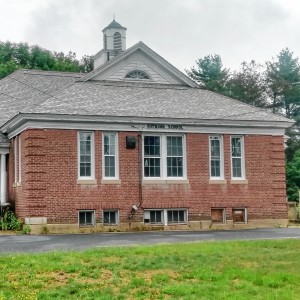 $700K debt exclusion would fund repairs to Raymond Hall
$700K debt exclusion would fund repairs to Raymond Hall
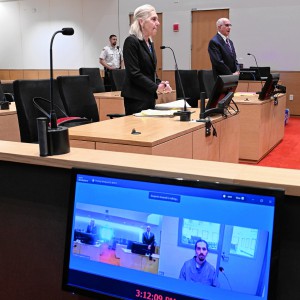 Lawyer argues Joshua Hart’s 2018 conviction for Orange murder had inconsistent verdicts
Lawyer argues Joshua Hart’s 2018 conviction for Orange murder had inconsistent verdicts
 UMass basketball: Minutemen nab another transfer in Arizona State forward Akil Watson
UMass basketball: Minutemen nab another transfer in Arizona State forward Akil Watson
 More than 130 arrested at pro-Palestinian protest at UMass
More than 130 arrested at pro-Palestinian protest at UMass
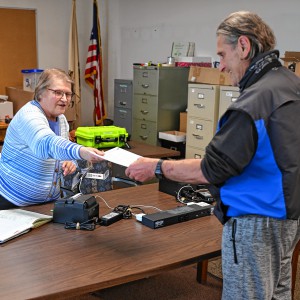 Erving voters say ‘no’ to $3.7M debt exclusion
Erving voters say ‘no’ to $3.7M debt exclusion
Chris Penna, an alum of the Carl E. Dahl House who has battled addiction for the past 20 years, said he’s been all over the country, “running from my disease.” He said that at first, he was afraid to look at people, and now he’s encouraged to go back and “help the next person.”
According to information provided at the summit, for individuals impacted by substance use disorders or a history of incarceration, their ability to obtain housing is often jeopardized, which also impacts their quality of life. According to the Three County Continuum of Care, 41% of individuals surveyed for the 2021 Point-in-Time Count reported that their substance abuse was a factor in them being unhoused.
The United States Office of Disease Prevention and Health Promotion considers stable housing a Social Determinant of Health, defined as “conditions in the environments in which people are born, live, learn, work, play, worship and age that affect a wide range of health, functioning, and quality-of-life outcomes and risks.”
Panelists also shared the role — and sometimes the hindrance — that technology can play in the recovery process. Jackson said that when the pandemic hit, Zoom meetings became more common, as well as social media groups for those in recovery. But for those in the programs, phones need to be given up, and he’s noticed a big change in behavior among those who get them back — essentially, walking around with their heads down when they should be interacting with others. He said in-person meetings are always better for forming a connection.
“I’m not a fan of technology,” Jackson said. “It helps and hinders.”
This was an opinion echoed by others on the panel. James Anello, assistant director of the Pathway House, said technology can distract from the purpose of being in the program.
Reed said that shortly before he entered treatment, he was surprised to learn that he’d need to give up his phone. He noticed a lot of changes after that, as he rediscovered his love of reading and chess, and went to bed at 9 p.m. instead of being up until midnight on his phone — a habit that returned when he got the phone back.
“That’s what it does to you,” Reed said.
As the panel reached its end, Kristen Pease, program associate at the Opioid Task Force, said that structure can be critical to recovery and that it takes time to accomplish. Pease herself has been sober for the past 11 years, and stressed that there are a variety of options available.
“It is my hope that this event will be a chance for our community to learn about the importance of providing supportive housing and residential recovery services for individuals in recovery,” Pease said in a statement. “Sober living environments provide a solid foundation for individuals as they embark on the lifelong journey of recovery.”
Max Bowen can be reached at mbowen@recorder.com or at
413-930-4074.

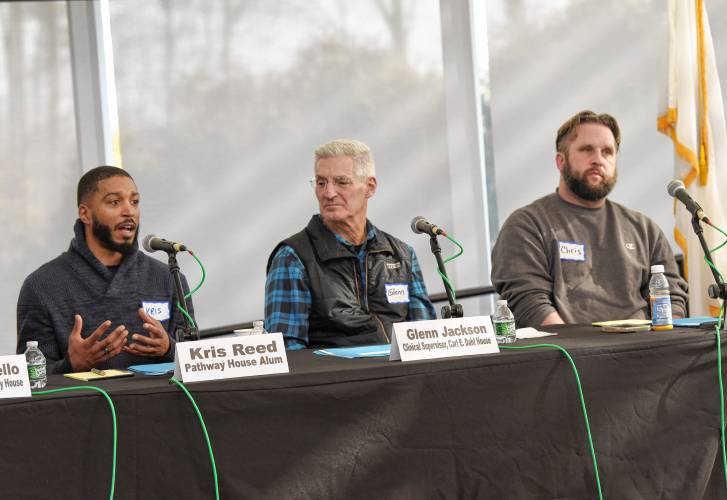
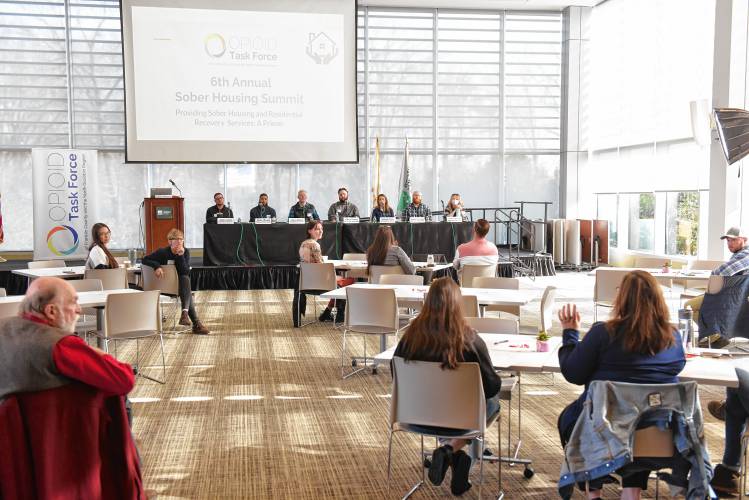
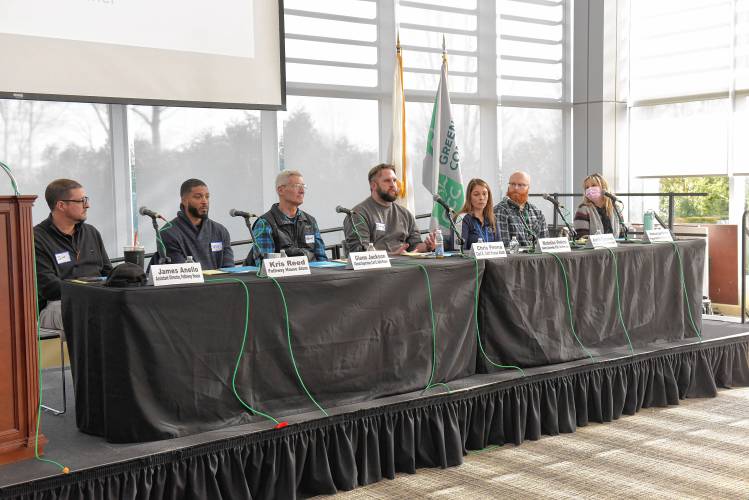
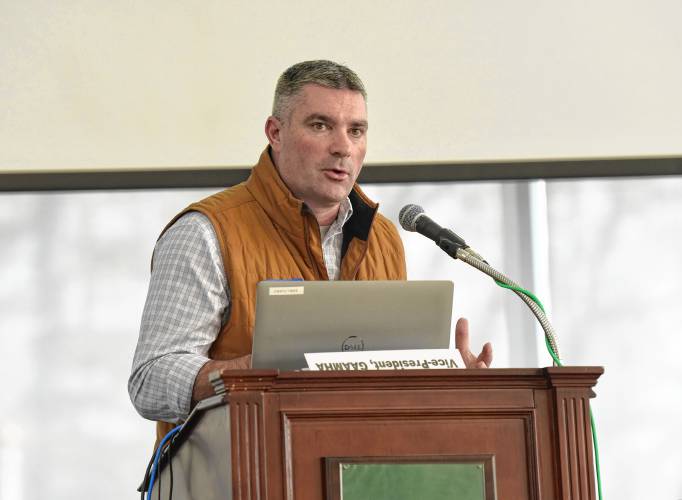
 Sportsman’s Corner: The quest for the Super Slam
Sportsman’s Corner: The quest for the Super Slam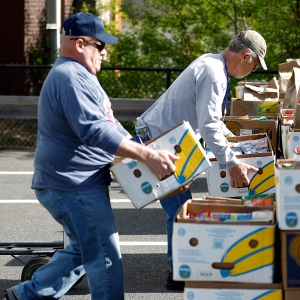 Annual ‘Food-A-Thon’ returns
Annual ‘Food-A-Thon’ returns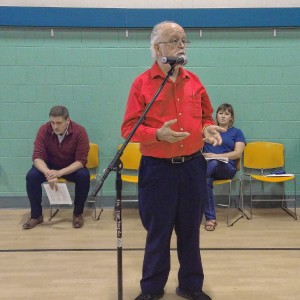 Erving Town Meeting voters back Care Drive housing project
Erving Town Meeting voters back Care Drive housing project North Quabbin Notes, May 9
North Quabbin Notes, May 9